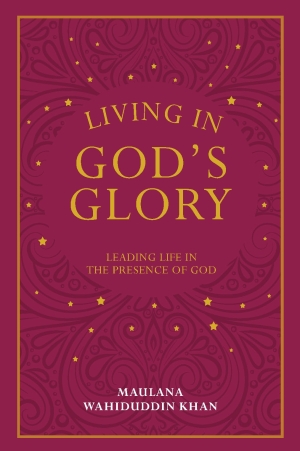Monotheism (tawheed) means to believe in one God; to believe in the fact that all power lies in the hand of one God alone; that He alone deserves to be worshipped. No act in the nature of worship is lawful unless directed towards God. It is God alone who fulfills all our needs. It is God alone who is behind the functioning of the entire universe. Superiority is the prerogative of the one and only God. No one enjoys real superiority in this world. All such concepts are false as associate anyone or anything with any of the aspects of God’s sovereignty.
The concept of one God is the essence of Islam and the source of all of its teachings. The Quran puts it thus:
“God: there is no deity save Him, the Living, the Eternal One. Neither slumber nor sleep overtakes Him. To Him belongs whatsoever is in the heavens and on the earth. Who can intercede with Him except by His permission? He knows all that is before them and all that is behind them. They can grasp only that part of His knowledge which He wills. His throne extends over the heavens and the earth, and their upholding does not weary Him. He is the Sublime, the Almighty one!” (2:255)
God is one, and everyone is dependent upon Him. He is not dependent upon anyone; he alone has power over everything. He does not beget, nor is He begotten. He is a unique Being with no equal, no likeness. All kinds of uniqueness inhere His Being, and this Being is of God, the Almighty. The concept of the one God is the central concept of Islam: this belief is the essence of Islam and the sole source of all of its teachings.
Worshipping God is to express reverence for one’s God and Creator, a Being who truly deserves to be held in awe. On the contrary, when man bows his head before anyone else, he exalts one who is no better than himself—and as such, has no right to be worshipped. Adoration of God glorifies Him, while worship of anything other than God degrades the worshipper. Veneration of God makes man a realist while prostrating himself before a non-God turns him into a creature of superstition. Bowing to God opens the door to the realization of the truth, while the worship of something other than God closes this very door in man's face.
Featured Articles
Featured Videos
FAQs
The common message of these three religious scriptures is monotheism, or the concept of unity of God. There is a verse in the Quran that reads:
The believers, the Jews, the Christians, and the Sabaeans, all those who believe in God and the Last Day and do good deeds, will be rewarded by their Lord; they shall have no fear, nor shall they grieve. (Quran 2:62)
A monotheist attributes all greatness to one God and seeks the fulfillment of his desires solely from Him. His worship is directed only to God, and he places his utmost trust in Him, considering Him superior in every aspect. Worship represents the ultimate expression of attachment to someone, which is why all forms of worship are exclusively the right of the one God. Worship of any kind is impermissible for anyone other than God.
Belief in monotheism—tawheed—is the foundation upon which all Islamic actions are built. Monotheism means belief in the oneness of God, recognizing that all powers and authority belong solely to Him. He alone is deserving of worship, and no act of worship should be directed to anyone other than God. He governs the system of the entire universe, provides everything to every creation, including man, and the right of superiority belongs solely to Him. When an individual realises God, the Creator and Lord of the universe, it ushers in an intellectual revolution within his mind, turning an ocean of realization into a raging tempest. Subsequently, a profound transformation occurs in their thoughts and emotions, resulting in the emergence of a new person. And when this revolutionary thought inspires many people, they form a society known as an Islamic society.
Modern science, through analysis and experimentation, has demonstrated that everything, despite its apparent diversity, ultimately consists of a collection of atoms, which are in turn composed of electromagnetic waves. This discovery has dismantled the myth of multiplicity in nature. Despite their outward differences, all things are ultimately unified in their reality. It is as if the advancement of knowledge has refuted the polytheistic theory and provided a solid basis for the theory of monotheism. Therefore, science supports the monotheistic concept of God.










